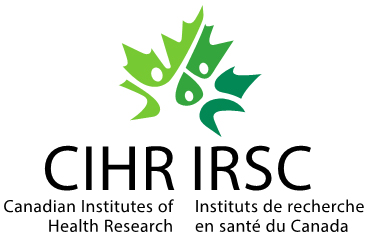Vitamin and Related Nutrient Adequacy Across the Lifespan
Early Life
EpiBrain: Epigenetic Effects of B Vitamins on Brain Health Throughout Life
B vitamins play an important role in brain development and function. Not only have previous studies observed an association between maternal folate status during pregnancy and cognitive performance in offspring, but optimal folate and related B-vitamin status may also prevent cognitive decline in later life. Epigenetics, which involves modifications to DNA without affecting the sequence, can influence gene expression and may be a possible mechanism linking B vitamins and brain outcomes. The EpiBrain project, a collaboration among research teams in Canada, United Kingdom and Spain, aims to investigate the nutrition-epigenome-brain relationship across the lifespan in hopes of improved understanding of the role of B vitamins, their effects on the epigenome and brain function in childhood and older age.
JPI-HDHL Call “Nutrition & the Epigenome”; CIHR Team Grant (Lead PI: Dr Yvonne Lamers).
International Co-Principal Investigators: Dr Nicole Letourneau (University of Calgary), Dr Helene McNulty (Ulster University, Northern Ireland), Dr Michelle Murphy (Universitat Rovira i Virgili).
Webpage: https://epibrain-folate.com/epibrain-team/
Vitamins in Pregnancy and Infancy – Defining Adequacy for Maternal and Child Health
Early development during pregnancy and infancy, also described as the first 1000 days of life, is characterized by rapid growth and increased nutrient demands. Low vitamin status during this critical time period can impair fetal and infant growth and development, and predispose the child to potential long-term health consequences.

© Yvonne Lamers
Maternal vitamin B12 status during pregnancy has been described to have a long-term impact on neonatal and infant vitamin B12 status. Vitamin B12, as well as folate, vitamin B6, and riboflavin, play key roles in the one-carbon metabolism crucial for DNA synthesis and methylation. Our research focuses on defining sensitive biomarkers of B-vitamin status in various stages of pregnancy and their association with infant vitamin status and growth indicators.
This project is in collaboration with Dr Hilary Vallance, Director of the Newborn Screening Program in BC and Yukon, Dr Graham Sinclair, Biochemical Geneticist, BC Newborn Screening Program at BC Children’s Hospital and Dr Andre Mattman, Medical Biochemist at St. Paul’s Hospital.
Newborn Screening as an Opportunity to Monitor for Nutritional Vitamin Deficiencies
Vitamin B12 deficiency in the infant develops in the first year of life and can lead to developmental delays. Screening for vitamin B12 deficiency is generally done by measuring serum (or plasma) total vitamin B12 concentrations. We recently developed a novel method for quantification of methylmalonic acid (MMA) in dried blood spots (DBS), which allows convenient and minimally invasive assessment of functional vitamin B12 status. The method is 10-fold more sensitive than currently existing screening test and able to quantify DBS MMA in ranges of vitamin B12 deficiency secondary to maternal deficiency. We estimated a reference interval for DBS MMA concentrations in healthy, term newborns. In light of the detrimental and potentially irreversible consequences of vitamin B12 deficiency, early diagnosis is crucial and ideally established for all newborns.
Derivation of Early Indicators for Diagnosis and Treatment of Vitamin B12 Deficiency in Children
Vitamin B12 deficiency in early childhood can result in severe and permanent adverse health consequences; however, there is a lack of an accurate tool for vitamin B12 deficiency diagnosis in children. Blood vitamin B12 levels are evaluated against adult normal values, yet early consequences may occur before blood levels appear to be “abnormal”. Our research team recently developed a new method to measure a more sensitive marker of vitamin B12 deficiency. By comparing the new method with clinical vitamin B12 testing in blood of at-risk children, we aim to define levels of vitamin B12 deficiency that warrant early treatment.
Co-Principal Investigator: Dr Linda Casey, Director of the BC Children’s Hospital Intestinal Rehabilitation Program (CHIRP).
Effects of Milk Intake on Nutrient Status and Neurocognitive Development in Toddlers
Docosahexaenoic acid (DHA), lutein, and choline are three nutrients thought vital for growth, neurocognitive development and function in early childhood. These nutrients are found in a limited number of foods, and based on data collected by us regarding the dietary intakes of young Canadian children and current feeding guidelines, may not be present in sufficient amounts in the diets of toddlers. This study aims to address whether improved levels of DHA, lutein, and choline contained in a follow-on formula (a toddler transition formula/milk beverage called Growing Up Milk, or GUM) improves the status of these nutrients in toddlers aged 18-24 months when compared to toddlers drinking cows’ milk at currently recommended levels. Biochemical markers of DHA, choline and lutein status are assessed along with anthropometrics, visual acuity and neurological outcomes using measures of cognitive and language development.
Co-Principal Investigator: Dr. Tim Oberlander, a physician-scientist in the UBC Department of Pediatrics, located at BC Children’s Hospital.
Adults and Later Life
DERiVE: DEvelopment of Riboflavin biomarkers to relate dietary sources with status, gene-nutrient Interactions and Validated health Effects in adult cohorts (JPI-HDHL)
Vitamin B2 plays a crucial role in human development and health across the lifespan. Recently, an increase in vitamin B2 intake was suggested to having a reducing effect on blood pressure. In most countries, there is little or no knowledge about the vitamin B2 nutrition status of the population due to the lack of convenient blood indicators and assessment tools. Dietary records are the sole source of information for most countries; however these do not reflect the biochemical status of the population which is a better indicator of health effects. In this international and multidisciplinary project, we aim to develop accessible blood indicators for vitamin B2 status assessment and identify which most sensitively reflect dietary intakes and food sources of vitamin B2 in Irish and Canadian adults. We will also demonstrate an important health effect of vitamin B2 by investigating its role in modulating blood pressure via a novel gene-nutrient interactive effect. In summary, sub-optimal vitamin B2 status may be more widespread than is generally recognized across the developed world, because of the reliance on dietary data only in nutrition surveys, without blood indicator evidence. This project will address this gap by developing accessible vitamin B2 blood indicators for use in population surveys globally, and by demonstrating important functional, gene-nutrient and health effects of optimal vitamin B2 status in Canadian, Irish and UK cohorts.
JPI-HDHL Call “Biomarkers in Nutrition and Health;” CIHR Team Grant (PI: Yvonne Lamers).
International Co-Principal Investigators: Dr Mary Ward (Ulster University, Northern Ireland) and Dr Albert Flynn (University College, Cork, Ireland).
Webpage: www.derive-riboflavin.com
Enhancement of Vitamin B12 Content in Yoghurt and its Effect on Vitamin B12 Status in Older Adults
Consuming fortified foods, or foods with added nutrients, is an effective strategy to increase intake of a nutrient that is less abundant in the diet. Currently, vitamin B12 (B12) is not added to foods in Canada, except for simulated dairy and meats. Older adults are recommended to meet their daily B12 requirements by consuming foods with added B12 and/or taking B12 supplements (i.e. sources of free B12) because they experience an age-related decrease in absorption capacity of food-bound B12. Yoghurt fortified with B12 is a novel dairy product that could fill a gap that presently exists in the Canadian diet and market. We are assessing the efficacy of B12-fortified yoghurt in improving the B12 status in older adults, one of the most vulnerable population groups to B12 deficiency consequences. The outcomes of this study have strong potential for knowledge translation and direct application in the local and national dairy industry by providing an alternative dietary source of B12.
Riboflavin and Vitamin B6 Status in Young and Older Adult Women
Vitamin B6 is essential to mount an adequate immune response and to maintain a healthy nervous system. Although research shows that dietary intake of vitamin B6 among Canadians is low, no clear data exists as to whether Canadians are living with suboptimal or deficient biochemical vitamin B6 status. Suboptimal vitamin B6 status has been linked to cardiovascular diseases, stroke, and cancer. Specifically, there is a higher risk of developing ovarian cancer and breast cancer, which puts women into special focus.

© Yvonne Lamers
In two cross-sectional studies, we determined the prevalence and determinants of vitamin B6 deficiency and suboptimal vitamin B6 status in young adult women (aged 19-35 years) and older adult women (aged 51-70 years). We found a 12% prevalence of low vitamin B6 status in young adult women. Further, we identified relative dietary vitamin B6 intake and the use of vitamin B6 containing supplements to be positive predictors, and body mass index and South Asian ethnicity to be negative predictors of vitamin B6 status. The data on older adult women are currently being evaluated.
Functional Consequences of Suboptimal B-Vitamin Status
A mounting number of epidemiologic studies have shown that suboptimal vitamin status, the ‘grey zone’ between adequacy and deficiency, is associated with a higher risk of chronic diseases. Suboptimal vitamin B12 status for example has been associated with an increased risk of adverse pregnancy outcomes such as spina bifida, and faster cognitive decline in older adults. Suboptimal vitamin B6 status has been linked with cardiovascular diseases and cancer. We are interested in contributing to the understanding of the underlying mechanisms between inadequacy and disease development by studying the biochemical alterations in stages of suboptimal vitamin status using stable isotope tracer protocols. Our research will contribute to the understanding of the metabolic and physiologic consequences of suboptimal B-vitamin status and B-vitamin imbalance.
Funding Organizations:




![]()